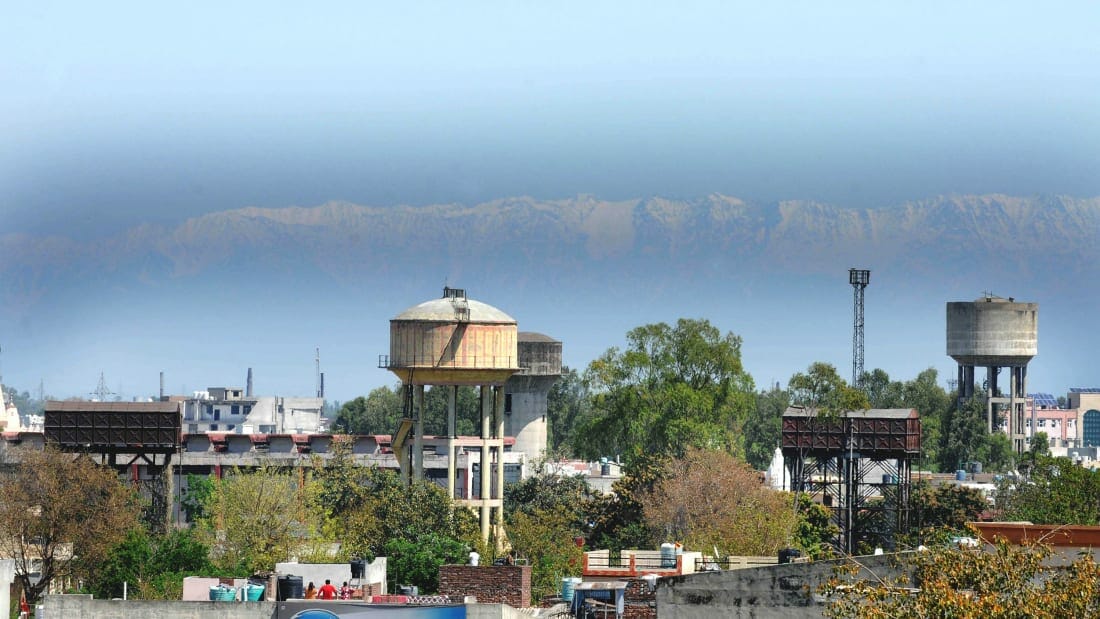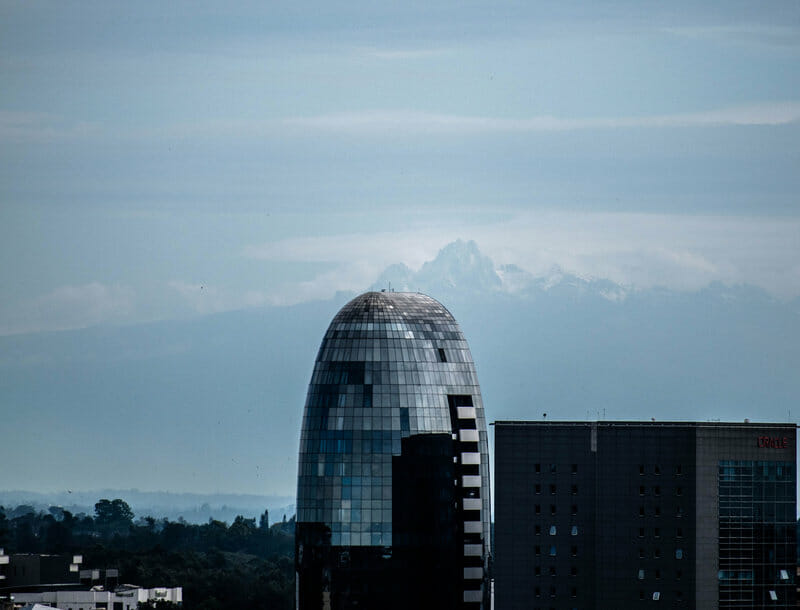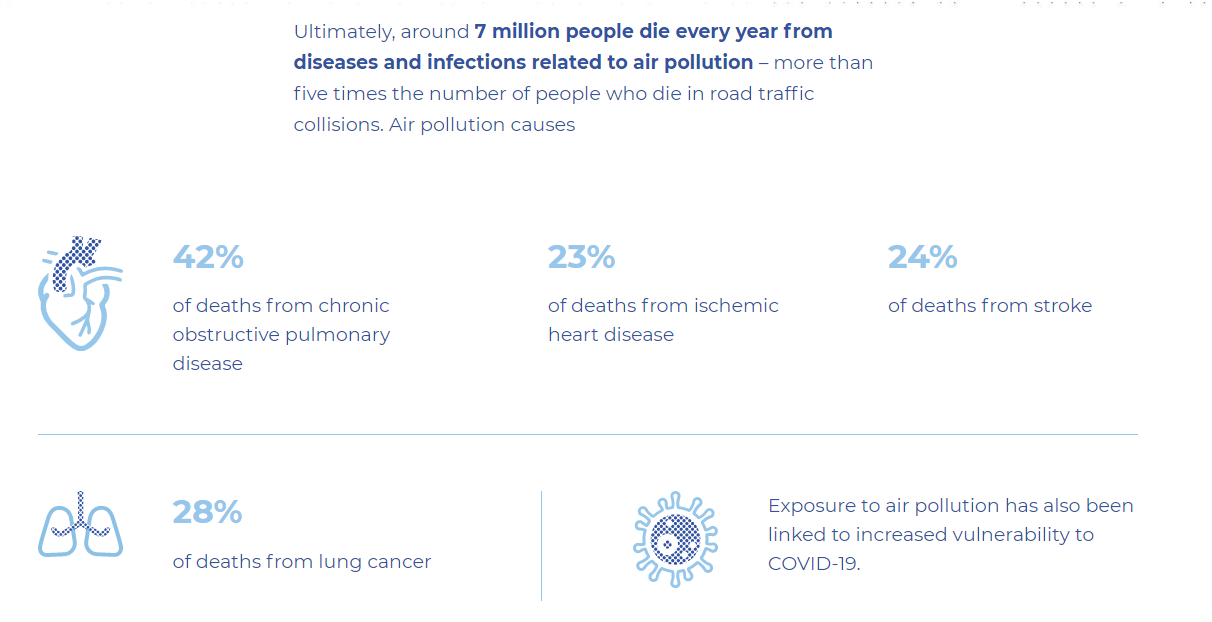

Today marks the first United Nations-designated International Day of Clean Air for blue skies, a new event initiated by the Republic of Korea, with support from the United Nations Environment Programme (UNEP) and the Climate & Clean Air Coalition (CCAC).
The theme, #CleanAirForAll serves as “a call to action for international cooperation to attain clean air, increased global awareness on the need to improve air quality, and actionable responses to air pollution”.
This is timely. COVID-19 has brought the importance of clean air and respiratory health into sharp focus. Indeed, at the peak of the global lockdown this year, many of us drew a slither of silver lining from images around the world of nature reclaiming areas usually occupied by humans or of unpolluted skies.
For KOKO’s teams in India and Kenya, the sight of the Himalayas from parts of Punjab, India (the first image below; source: CNN), was a tangible measure of the huge reduction in PM10 air pollution levels since lockdown, while in Nairobi, Kenya, photos depicting pristine views of Mount Kenya’s snow-capped peaks brought disbelief (the second photo below; source: Osman Siddiqi). (We can confirm the veracity of the Mt. Kenya image – a group of the KOKO Kenya team saw this majestic view at first-hand from our central Nairobi office).


If these rare occurrences were a demonstration of the beauty of our environments, they ultimately struck a note of frustration and alarm at both what could be, and the urgency with which we need to let our planet catch its breath.
Air pollution in Nairobi is around 10 times WHO safe limits, driven by emissions from countless vehicle exhausts and more than one million dirty cooking stoves spewing GHGs and black carbon into the atmosphere each day.
If you’re reading this post, you’ll know this is one of the issues we’re addressing with KOKO Fuel. In fact, a recent study by Dalberg Advisers noted that a robust ethanol cooking fuel industry in Kenya – and the associated transitions from charcoal and kerosene-based cooking – could deliver over 10% of Kenya’s “Paris 2030” emissions reduction targets.
But as the planet continues to feel the strain, so do its peoples – especially the poor, who are disproportionately affected by pollution. Air pollution is a silent killer, accounting for around 7 million deaths each year. Within that, at around 4 million, diseases from dirty cooking are the fourth biggest killer globally: more than tuberculosis, malaria and HIV/AIDS combined.

In Kenya alone, 21,560 deaths from dirty cooking every year is more than three times the national road accident toll. Nairobi customers are increasingly aware of the importance of using clean fuel inside their home to help mitigate the risk of developing the underlying respiratory conditions that make people more susceptible to COVID-19 complications.
The Clean Cooking Alliance, the international non-profit representing the sector, highlights the challenge that many in fast-growing emerging market cities face: “Not only does cooking with polluting fuels and technologies increase people’s vulnerability to COVID-19, but effective social distancing is a significant challenge in countries dominated by informal job markets or overcrowded urban settlements." (For more on clean cooking in the face of coronavirus, this article from Practical Action offers a good summary).
Globally, 3 billion people continue to cook with unclean fuels and air-polluting appliances, inhaling deadly smoke, day after day. As UNEP states, in spite of progress made in recent years, this “remains almost exclusively the problem of less developed countries”.
Indeed, it is unacceptable that still only 15% of the Kenyan population has clean cooking access, a figure that is sadly representative of the whole of sub Saharan Africa, with many other emerging markets faring little better.
As cities grow, their resources become more strained than ever, and pollution increases exponentially.
If we are to see a truly ‘green’ economic and societal recovery from this pandemic, we need to bring safe, modern cooking solutions such as LPG and bioethanol within reach of everyone.
Because whatever the setting - outdoor or indoor, urban or rural - one thing is certain: clean air saves lives.
#CLEANAIRFORALL